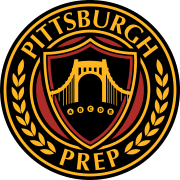Most students do not place proper time and effort to obtain high quality letters of recommendation. Many college admissions officers say the information obtained from the recommendation letters are vague, inconclusive, misaligned, and unpersuasive.
Good news is that with some planning and dedicated effort, you can obtain recommendation letters that reflect your personality, values, and career aspirations that corroborate with your past academic and extracurricular performances.

Remember: YOU can control the content of these letters, and YOU should provide your recommenders with clear guidelines to make this process efficient and effective. Here are some pro-tips to follow:
- Most often, two recommenders should suffice. Two academic, one non-academic, preferably in a supervisory role. A fourth, if required, can be another of the first two options but is often unnecessary unless colleges specifically ask for it.
- Choose a recommender who reflects your major or career paths, as well as someone who has known you over a period of time, more than 1 year, preferably.
- Give your recommenders as early a head start as possible to complete the task. This is important. Best time to ask is at the end of your Junior year, but the beginning of your Senior year will work fine for October deadlines.
- Make an appointment with the recommenders, and talk to them in-person. This is important, since asking for a recommendation is a highly personal affair, and a phone call or email is not. If you cannot meet in-person, then ask for a Zoom meeting and create a document that provides the following information:
- Ask for an expressly “strong letter of recommendation” – if you see (in person) or believe there will be any hesitation (document request) in their response, then thank them and withdraw the request.
- Your class participation and demonstrated outcomes
- Current copy of your resume
- A copy of your personal statement, if possible
- Any particular accomplishments or projects, in detail
- Challenges met and overcome
- Specific colleges and deadlines to adhere to (eg. “UVA, CMU for EA by 11/15th”)
- Lower grades and how you overcame them
- Always waive your right to view the letters in the future – this provides more authenticity
- Provide clear guidelines for submitting the letters – usually this will be in the form of an electronic submission, such as the Common App or a college-based form. If it’s in paper-based format, have a self-addressed stamped envelope and all pages printed out.
- Follow up with your recommenders:
- (1) a week before submission to “touch base and ask if they need anything else” from you, and
- (2) a week after submission, to thank them for their efforts. A handwritten letter or card will be a nice touch here, since teachers usually have a TON of letters to complete each year.
References:
University of California, Santa Cruz. (2012, September 2). A Guide to Getting Good Letters of Recommendation. Retrieved September 20, 2021, from https://careers.ucsc.edu/health/medicine/Application/letterofrec.pdf.
“Getting into College: How to Get a Great Letter of Recommendation.” Getting into College | How to Get a Great Letter of Recommendation, The College Board, bigfuture.collegeboard.org/get-in/your-high-school-record/how-to-get-a-great-letter-of-recommendation.
Allison, Alexis. “How to Ask for a Letter of Recommendation: College Essay Guy.” How to Ask for a Letter of Recommendation for College: Step-by-Step Guide for Students, College Essay Guy, 17 May 2021, www.collegeessayguy.com/blog/how-to-ask-for-a-letter-of-recommendation.
“How to Write Good Letters of Recommendation.” MIT Admissions, MIT, mitadmissions.org/apply/parents-educators/writingrecs/.

